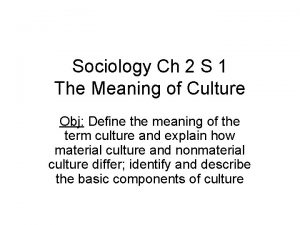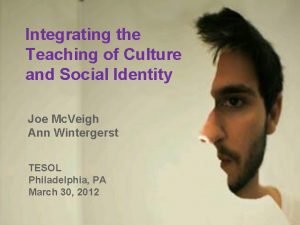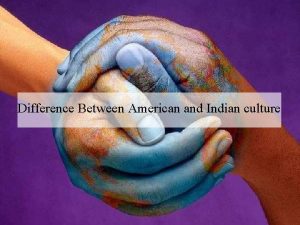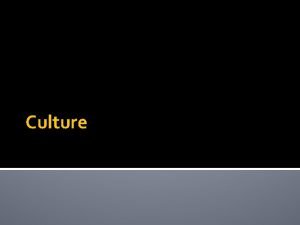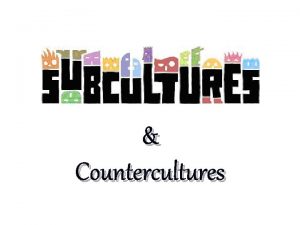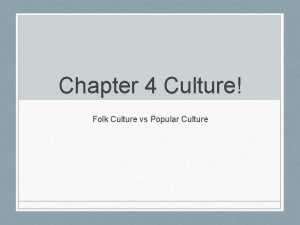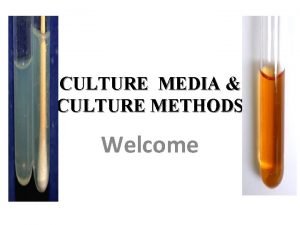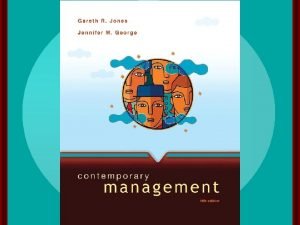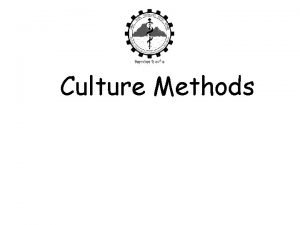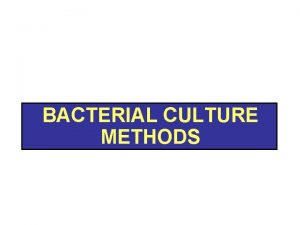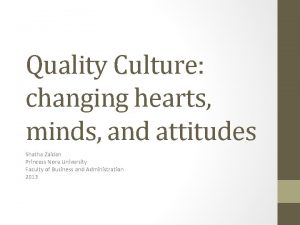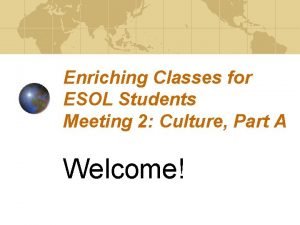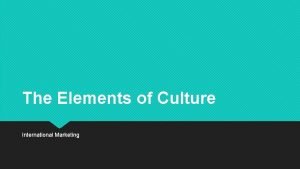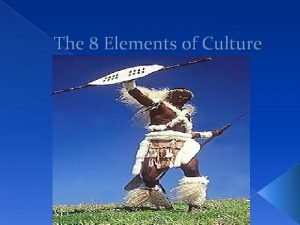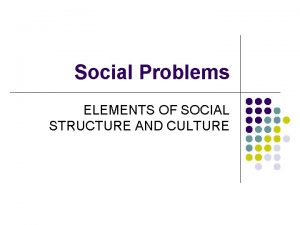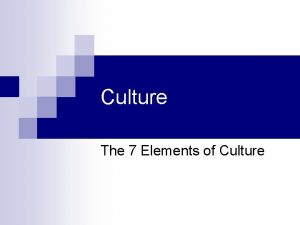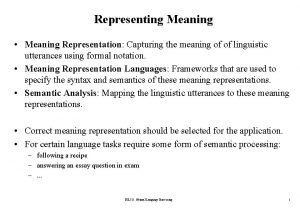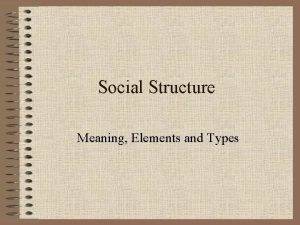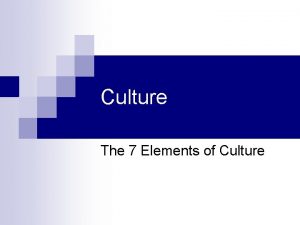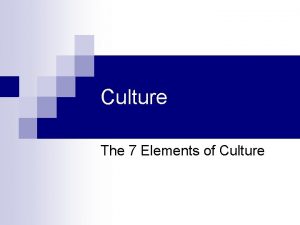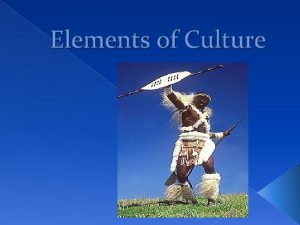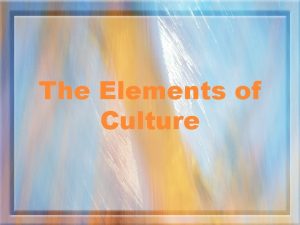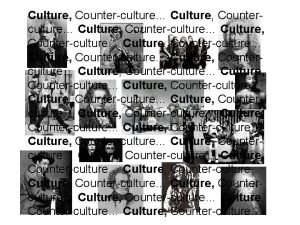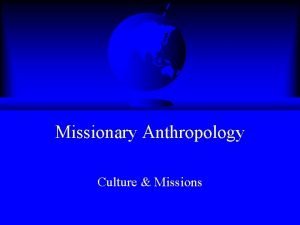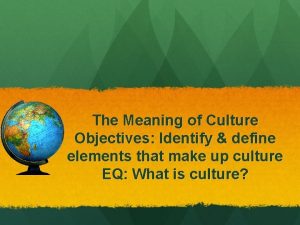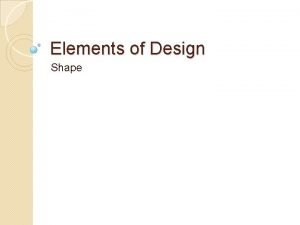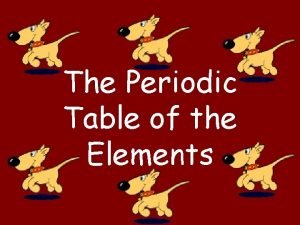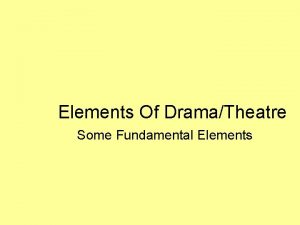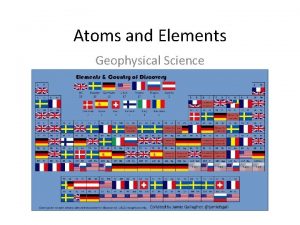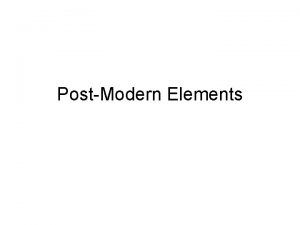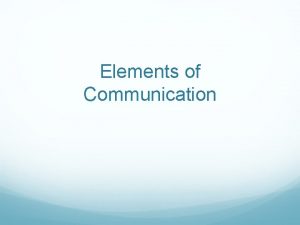The Meaning of Culture The Elements of Culture




















- Slides: 20

The Meaning of Culture

The Elements of Culture • Everyone born into a culture. • Share common characteristics. • Anthropologists divided into 7 Elements

#1 Social Organization smaller structure-meet needs of people • Family Patterns– most important • nuclear family • extended family

Social Classes • Ranking of people in order of status – Based on what that culture values highly – Social mobility

Customs and Traditions • -rules of behavior • cultural rules vary in importance • social pressure to fit in • Social norms-unify or not

Arts and Literature • Products of human imagination such as art, music, literature that please and entertain us. • Folk tales-traditions that help pass on a culture’s basic beliefs and values. • A and L help to strengthen a culture’s identity

Language • The cornerstone of culture • reflects a culture’s identity • unify culture (or not) • age

Religion • Arts often closely linked to people’s religious beliefs • within a culture, people usually share religious beliefs • Meaning of life

Forms of Government • People’s governments provide for their common needs such as order and protection • people organize governments • types of governments: • democracy • republic • dictatorship

Economic Systems • Economics refers to how people use limited resources to satisfy their wants and needs. • 3 basic questions: – what goods and services should we produce – how should we produce them – for whom should we produce them

Economics cont. • Traditional economy: people produce most of what they need to survive • Market economy: buying and selling goods and services. • Command economy: government controls what goods are produced & what they cost • Mixed-most nations have mixed economies


The American Dream

Cultural diffusion • spread of culture and the factors that account for it, such as migration, communications, trade, and commerce


Ethnocentrism • The tendency to look at the world primarily from the perspective of one's own culture. • Cultural superiority

Cultural Divergence • The restriction of an element of culture from outside influences • Example: government censorship

Cultural Convergence Cultural convergence occurs when multiple cultures become more like one another through exposure to traditions, ideals and languages.

Questions to Ponder • Describe three elements that help give YOUR culture its identity. • How are family patterns related to YOUR culture? • How do the arts in the United States help to unify the nation? • Which element of culture is most relevant in your life?

 What is cultural divergence
What is cultural divergence Individual culture traits combine to form culture patterns.
Individual culture traits combine to form culture patterns. Batch culture vs continuous culture
Batch culture vs continuous culture Fed-batch
Fed-batch Characteristics of collectivism
Characteristics of collectivism Indian vs american culture
Indian vs american culture Stab culture and stroke culture
Stab culture and stroke culture Folk culture and popular culture venn diagram
Folk culture and popular culture venn diagram Sub culture group
Sub culture group What is folk culture
What is folk culture Stroke culture method
Stroke culture method Homework due today
Homework due today Adaptive culture from inert culture
Adaptive culture from inert culture Lawn culture method
Lawn culture method Lawn culture method
Lawn culture method Quality culture changing hearts minds and attitudes
Quality culture changing hearts minds and attitudes Surface culture deep culture and esol
Surface culture deep culture and esol Low context culture examples
Low context culture examples The 8 elements
The 8 elements Elements of social structure
Elements of social structure 7 elements of culture lesson plan
7 elements of culture lesson plan

